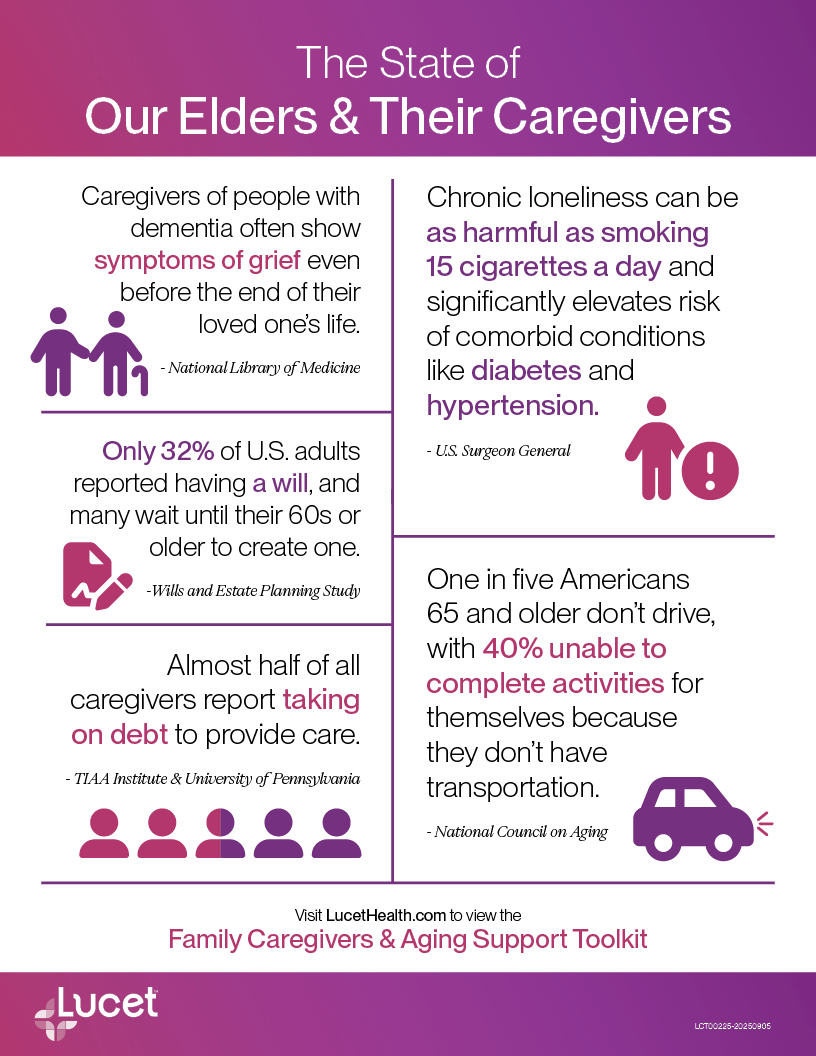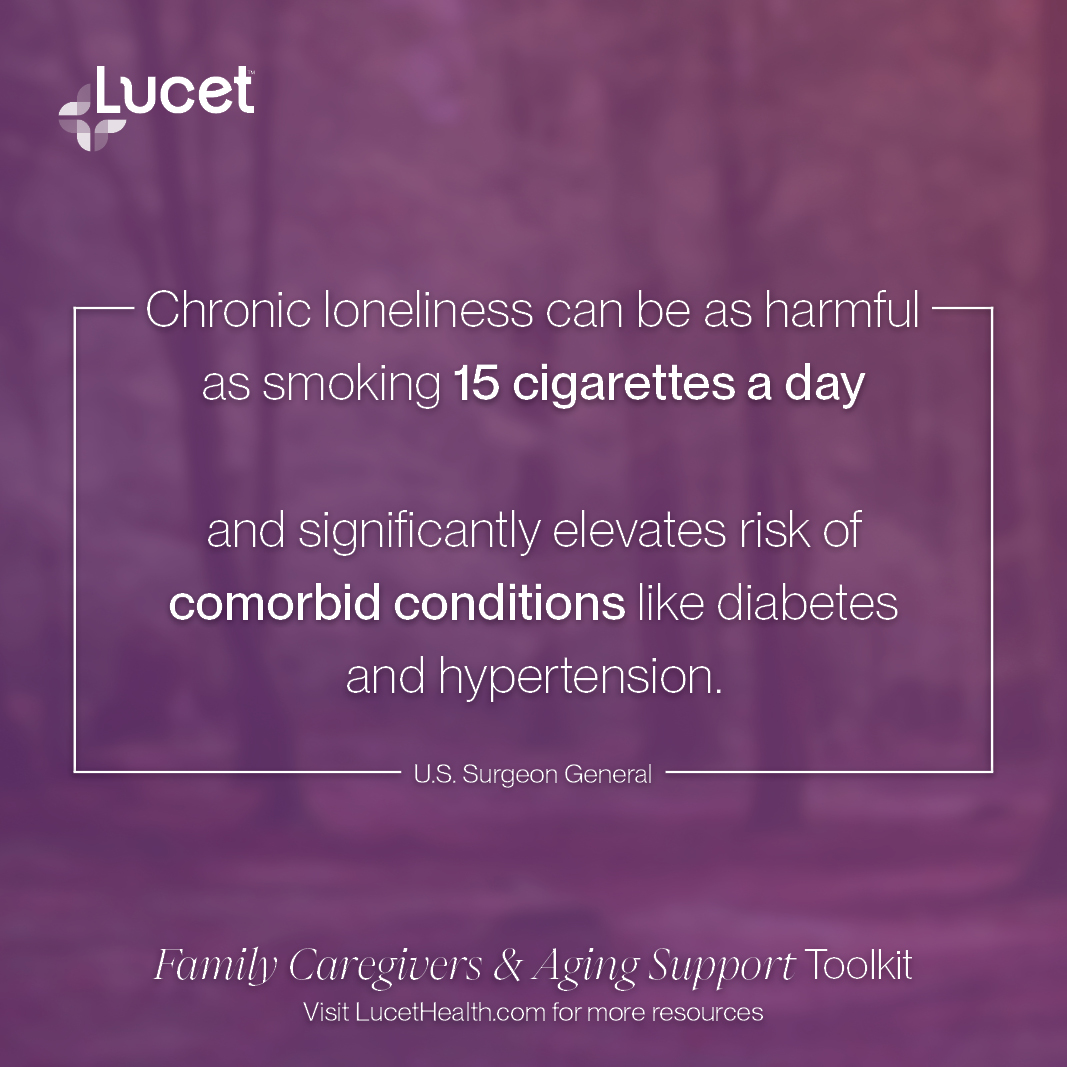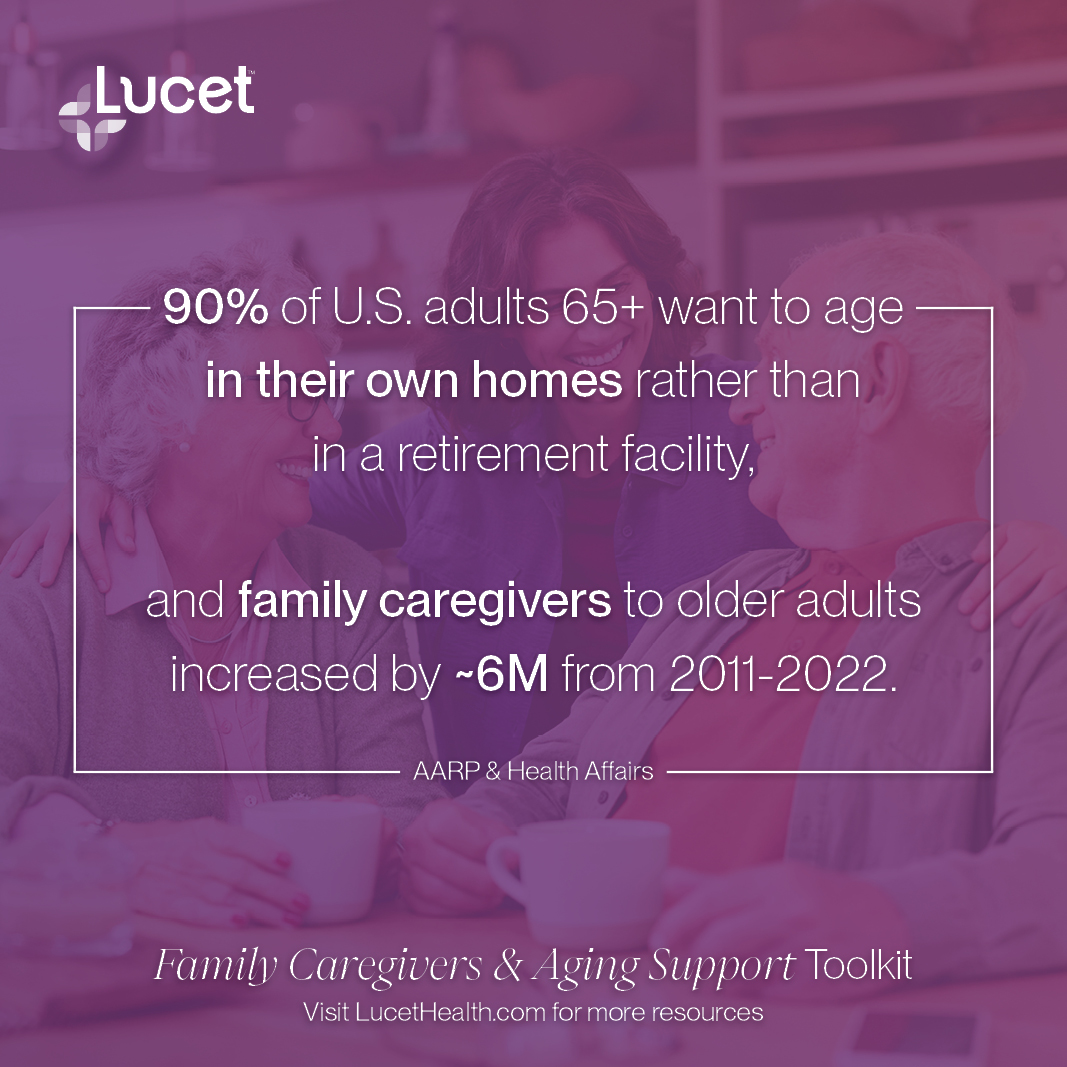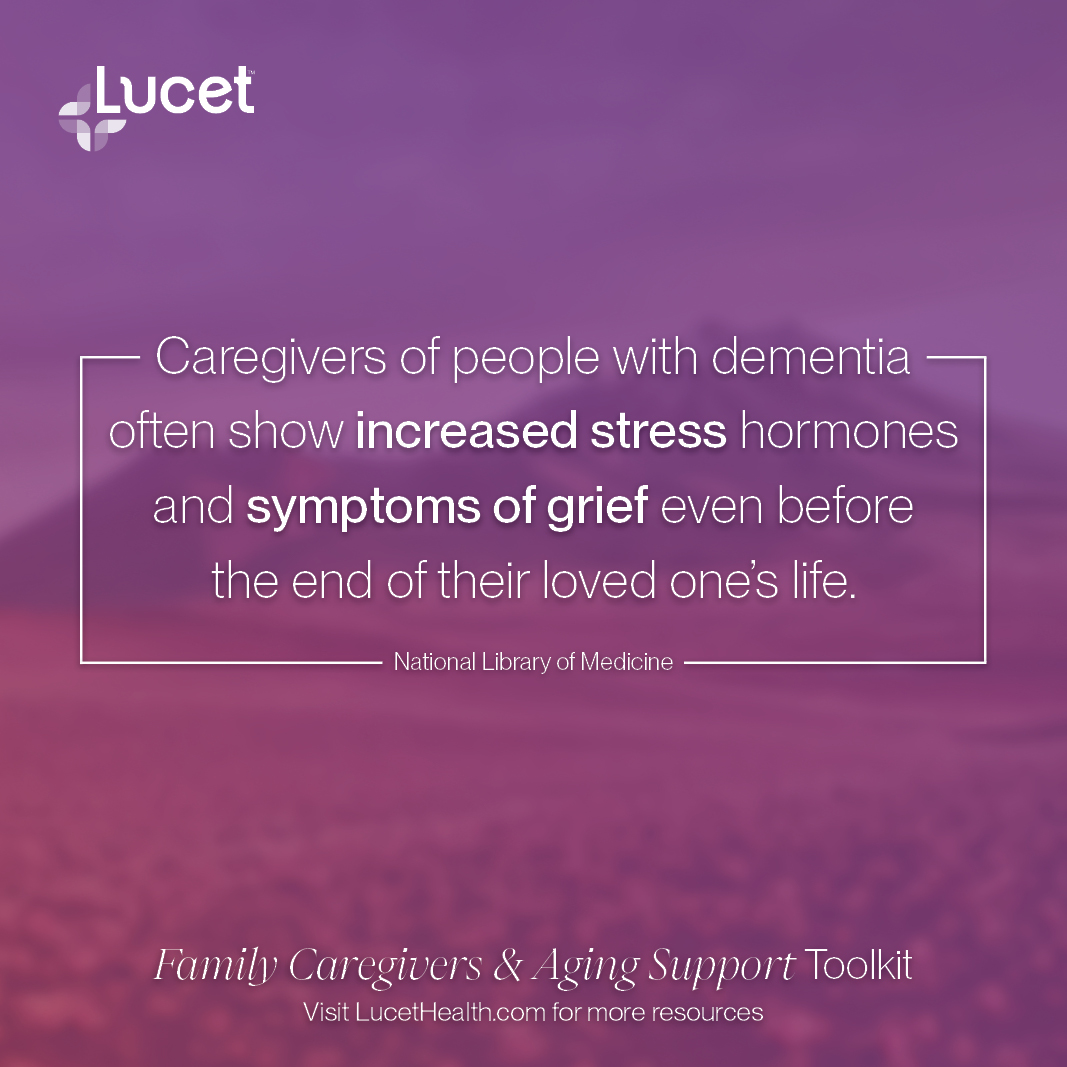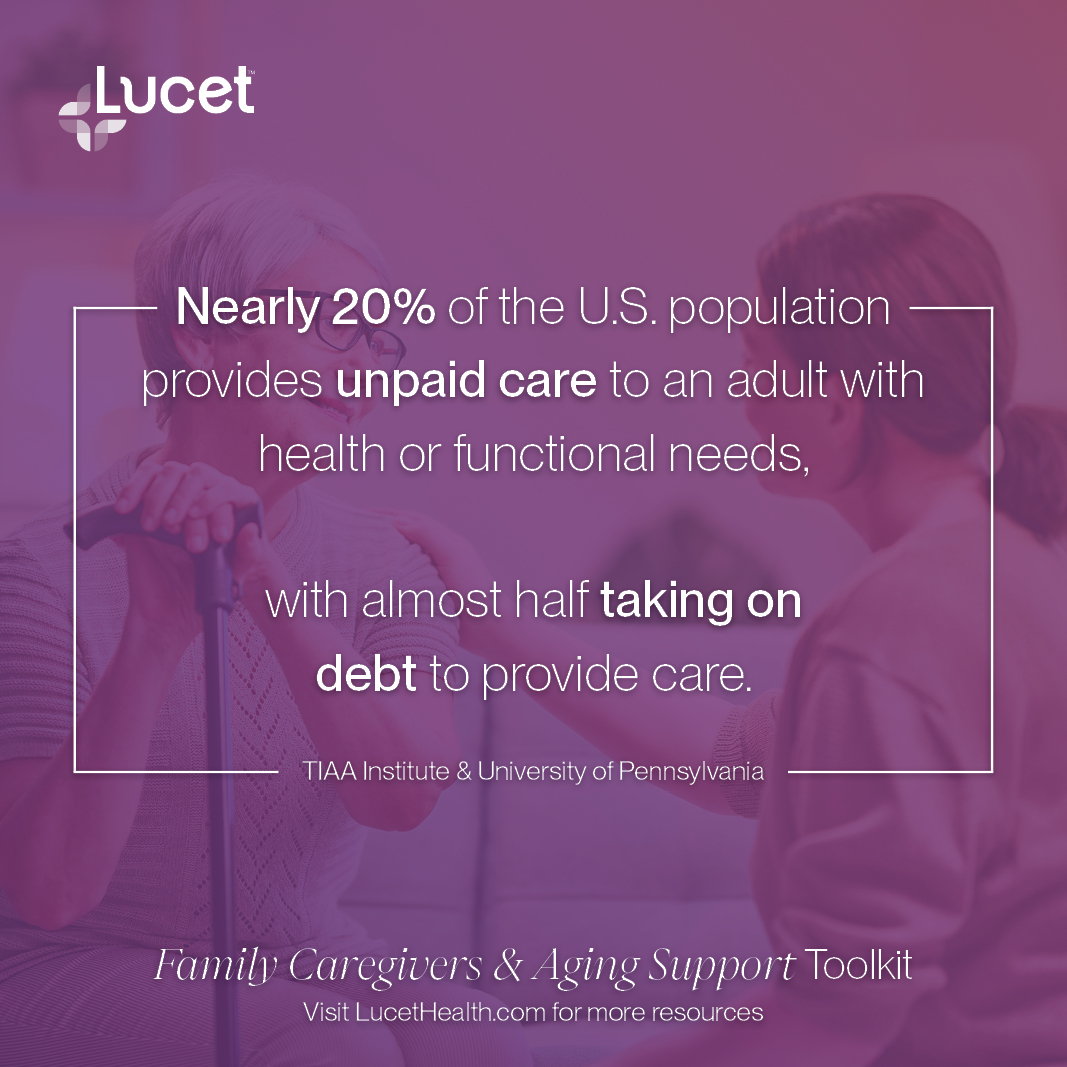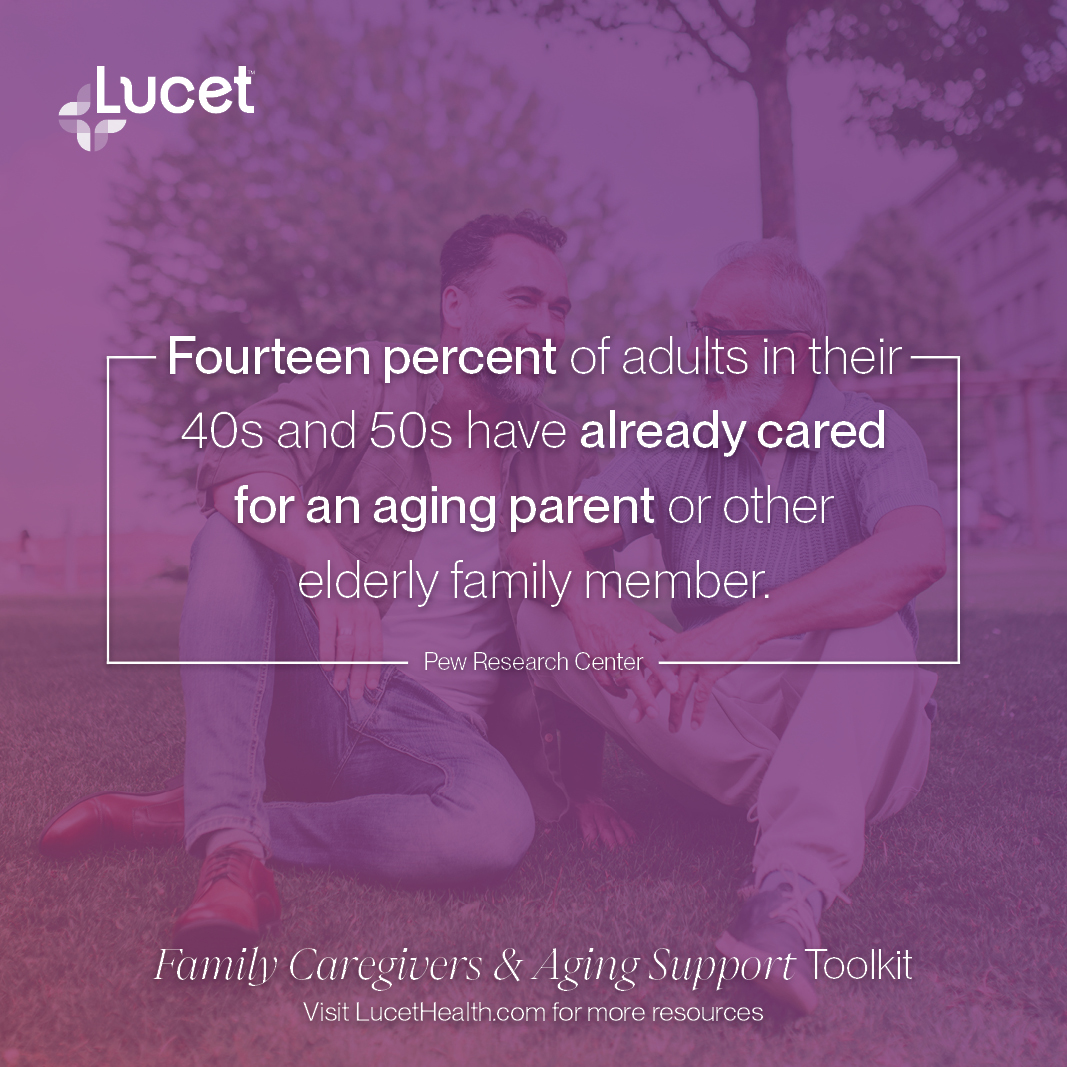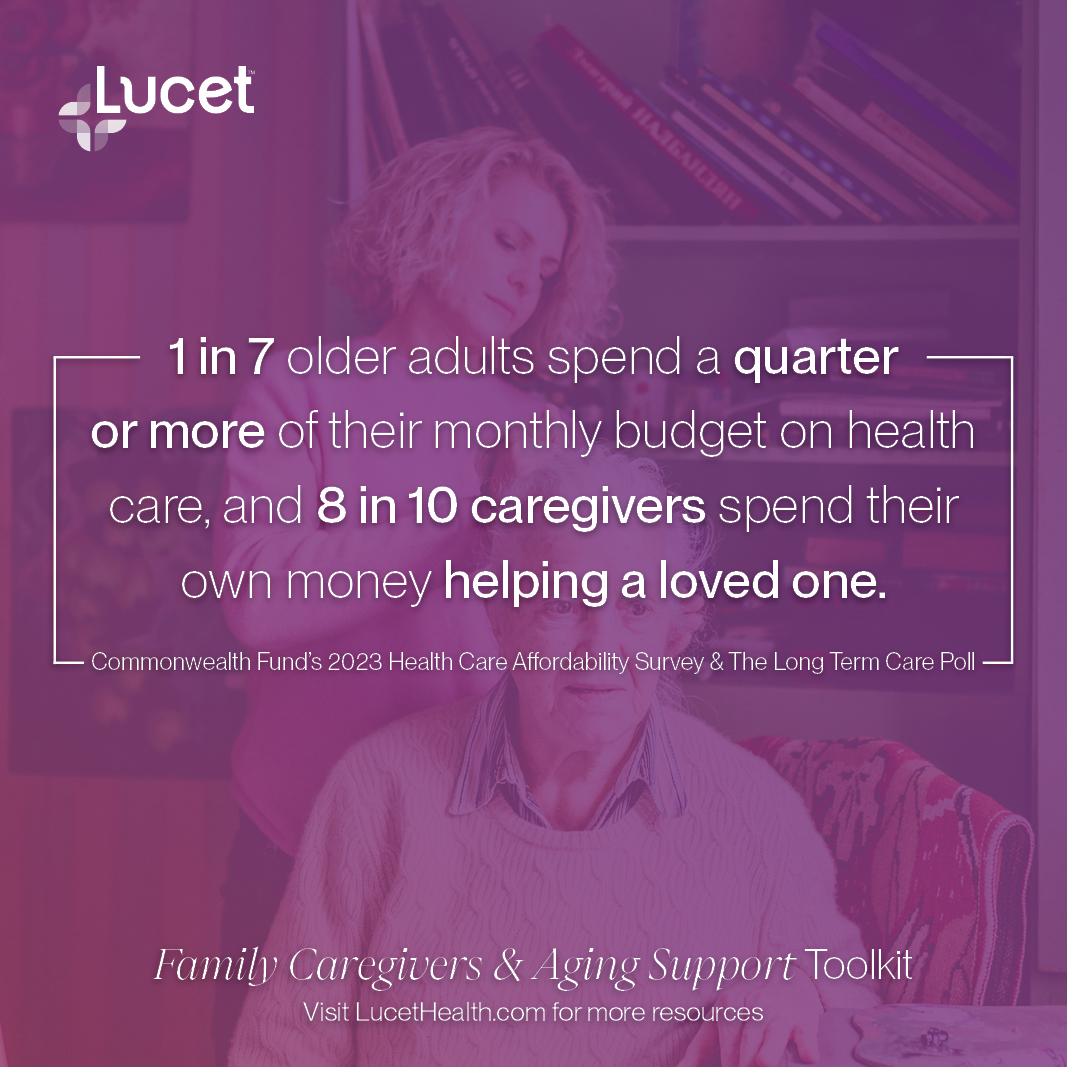Join the Conversation: Family Caregivers
& Aging Support
November is National Family Caregivers Month
Use the language below when posting about family caregivers and supporting older Americans' mental health on social media. Follow Lucet to see our content and share it on your account. You can also follow the steps below to post from your own account.
Create posts on your social media accounts
- Log in to one of your active social media channels to create a post.
- Scroll below and choose your desired social post language.
- Copy the caption and paste it into your social post editor.
- Right click on the corresponding graphic below to save it to your computer, then upload the graphic to your post to accompany the caption.
- Be sure to tag @LucetHealth. To tag any organizations listed in the caption, type @ in the social post editor, then start typing the desired organization. Choose the organization you want to tag from the dropdown list of pages that appear.
- Include the following hashtag in your caption: #CareForCaregivers #RespectOurElders
- Post!
Share Infographic/Entire Toolkit
Aging is a privilege that can also bring unique challenges to the mental health of the elderly and their families. With age comes wisdom, but with the added stress of illness, isolation, loss of independence and increased reliance on family to provide physical and emotional support. The mental toll that caring for our older generation — often while still raising children — can take on caregivers cannot be ignored.
November is National Family Caregivers Month. Use these resources to understand the risks that face our elders and how we can provide support for their mental health and that of their caregivers. You can print, distribute or share via social media the materials in this toolkit throughout the month of November and all year long: resources.lucet.health/toolkit-family-caregivers-and-aging-support
If you or someone you know is older and struggling mentally, or needs support while caring for an aging loved one, you can find more resources through the National Council on Aging.
#CareForCaregivers #RespectOurElders #NationalFamilyCaregiversMonth
Share Articles
One of the most significant threats to older Americans' mental health is loneliness. Particularly after retirement, opportunities for daily social interaction may decrease without extra effort to connect with the community — not to mention physical illness that may limit mobility and the loss of friends as we age. Our elders deserve peace of mind in their golden years.
If you are older or care for someone who is over 65, read more about ways to combat loneliness and protect our elders' mental health: resources.lucet.health/toolkit-family-caregivers-and-aging-support/combatting-loneliness-as-we-and-our-loved-ones-age
#CareForCaregivers #RespectOurElders #NationalFamilyCaregiversMonth
Advocating for an aging loved one's needs, like the need to stop driving, can be sensitive as they grapple with loss of independence and end-of-life anxieties. These are tough issues to talk about, but need to be addressed. Leading with tact, compassion and patience can help make challenging conversations easier and provide them with better support in the long run.
Read more about how to be proactive in planning for your aging loved one's needs: resources.lucet.health/toolkit-family-caregivers-and-aging-support/advocating-for-needs-that-come-with-aging
#CareForCaregivers #RespectOurElders #NationalFamilyCaregiversMonth
It's not surprising that most of us want to remain in our homes for as long as we can as we age. But staying at home as health concerns increase with advancing age isn’t always simple. It takes planning, support and honest conversations, especially between family caregivers and their loved ones. In-home care options can help older adults remain independent, longer.
Read more about how to support your aging loved one in their home: resources.lucet.health/toolkit-family-caregivers-and-aging-support/empowered-aging-at-home
#CareForCaregivers #RespectOurElders #NationalFamilyCaregiversMonth
Many family caregivers feel grief even while an aging loved one is still with them. This is a common feeling called anticipatory grief, which can happen as you begin to see a loved one change with age — losing mobility, forgetting names or needing help with simple tasks.
Read more about how to manage anticipatory grief and focus on the joys you still have with your loved one in the present: resources.lucet.health/toolkit-family-caregivers-and-aging-support/making-peace-with-grief-in-the-last-chapter-of-life
#CareForCaregivers #RespectOurElders #NationalFamilyCaregiversMonth
Share Tips
Taking on the care needs of a family member or loved one can be rewarding as well as challenging. Caring for a person who is not fully independent, particularly someone elderly whose health in decline, can take a mental, emotional and financial toll on caregivers. You are not alone.
Learn how to make time for your own mental health and accept moments when you cannot do it all as you provide care for someone else: resources.lucet.health/toolkit-family-caregivers-and-aging-support/care-for-caregivers
#CareForCaregivers #RespectOurElders #NationalFamilyCaregiversMonth
Caregiving comes in a variety of forms. You might be helping an aging parent manage daily tasks, supporting a spouse through a long-term illness, caring for a child or sibling with a disability, or raising a relative because their parents can’t. Taking on a caregiving role is one of the most selfless acts we can do, but it isn't easy, and it's okay to acknowledge feelings of exhaustion or burnout.
Learn how to work through complex feelings and take on the help you need without guilt as a caregiver: resources.lucet.health/toolkit-family-caregivers-and-aging-support/accepting-help-as-a-caregiver
#CareForCaregivers #RespectOurElders #NationalFamilyCaregiversMonth
As we get older, managing money gets more important and more complicated. Family caregivers can prepare for this with aging loved ones by getting comfortable talking about money. What do they have saved for retirement? Are there enough funds to cover housing, food, medication and other needs?
Learn practical advice to budget for increased expenses in our golden years: resources.lucet.health/toolkit-family-caregivers-and-aging-support/managing-finances-in-our-golden-years
#CareForCaregivers #RespectOurElders #NationalFamilyCaregiversMonth
#CareForCaregivers #RespectOurElders
If you or someone you know is older and struggling mentally, or needs support while caring for an aging loved one, you can find more resources through the National Council on Aging.
